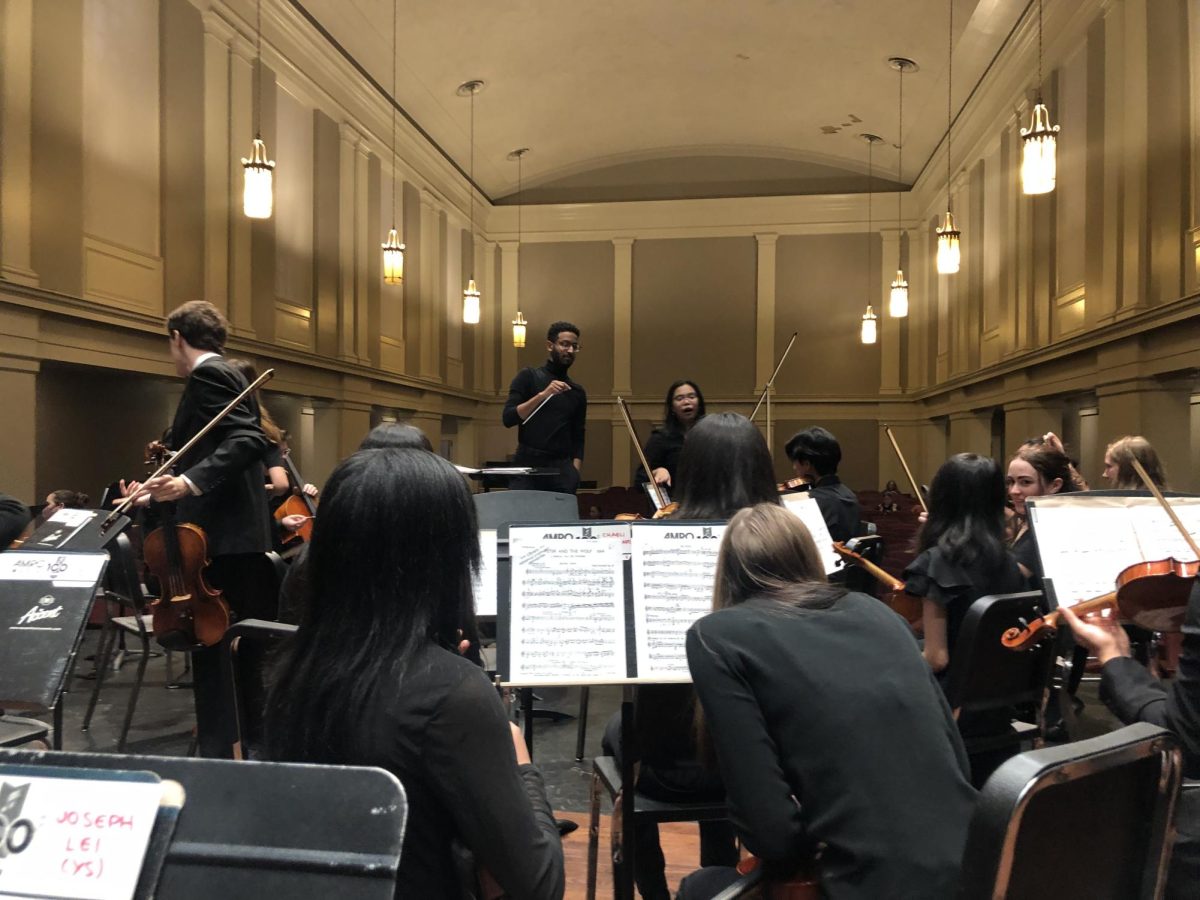Hidden in the depths of downtown Memphis, overtaken by clubs and museums, lies a select group of students with a rare opportunity. Rosin overrides their strings, and worn-out reeds cover their stands as they prepare themselves for the day ahead. Every Sunday, encased inside the Cannon Center, select teenagers from the Mid-South gather to practice for the Memphis Youth Symphony Program (MYSP). MYSP allows students of different instrumental and demographical backgrounds to come together and expand their knowledge of music.
“When I was five [years old], I asked my mom if I could learn violin, [and now] this is my fourth year in [MYSP],” Jack Feng (9) said. “I love it because I’ve [made] a ton of new friends through it, and it’s a really fun experience.”
MYSP consists of an assortment of instrumental groups. The most common group students join is the orchestra, which allows both wind and orchestral instruments to play together in harmony. Many students have been playing their designated instrument since they were little, and whether their passion stems from their parents or their own childhood dreams, players are able to learn new techniques from their teachers, fellow musicians and the Memphis Symphony Orchestra themselves.
“It’s pretty amazing knowing that [the adult symphony] performs here, and sometimes they come and work with us,” Annie Wu (11) said. “When they came in and taught us, [we learned] that it is not really how [you] play the notes, but more like how you make the notes sound like the color of the music.”
MYSP is meant to give young musicians the experience of playing at a professional level. Throughout the season, students learn how to improve their intonation and overall tone; they also learn how to tell a story through every piece they play. With the inclusion of band and orchestra together on stage, students are taught how to mesh their sounds together rather than outshine each other.
“Playing in a band and an orchestra is a big change for many players, because not only is the style and type of music different, but the way you play the music is a lot different,” Grace Dillender (11) said. “[As a bassoon player] I had to learn how to project my sound more and as I learned last year, it’s super easy to get lost if you aren’t constantly aware of everything that is going on. By going to a lot of rehearsals, I learned how to play the style that orchestral music requires.”
While many players originally auditioned for MYSP to expand their musical knowledge, they also gained the chance to meet new individuals. Students from across the Mid-South who otherwise would have never interacted with one another are given the chance to build relationships through MYSP. Many students at MYSP have found their place in the music world because of the friends they have made along the way.
“I’ve made a bunch of friends with other students in the orchestra, and they make the overall experience a lot better,” Dillender said. “When I got to my first rehearsal, I felt super intimidated because I felt like I didn’t belong. Once I got to know people, it wasn’t scary to play anymore because I didn’t feel like everyone was judging the quality of my sound or playing abilities.”
As finger markings fill the once blank sheet music and the sound of vibrato soothes the audience, students gather on stage for a performance masked behind months of sweat and practice to mark an end to the season. While many students spend their off-season preparing for reauditions, some students find themselves at a crossroads between either continuing to play and entering the world of professionalism or closing their instrument case forever. The question of whether to continue or not is one that leaves most instrumentalists up at night for hours, but these musicians will nonetheless have the memory of the Memphis Youth Symphony Program experience engraved inside their instruments.
“[MYSP] is a pretty unique community that has grown over the years,” Wu said. “It is really fun to be a part of it because they are so inclusive. [But] after high school, I don’t know if [I will continue playing]. I feel like playing viola was something I was forced into; I didn’t like it that much, but it was something I kept doing. [However,] I still think it was beneficial because I met so many of my friends that I have now through orchestra.”




































